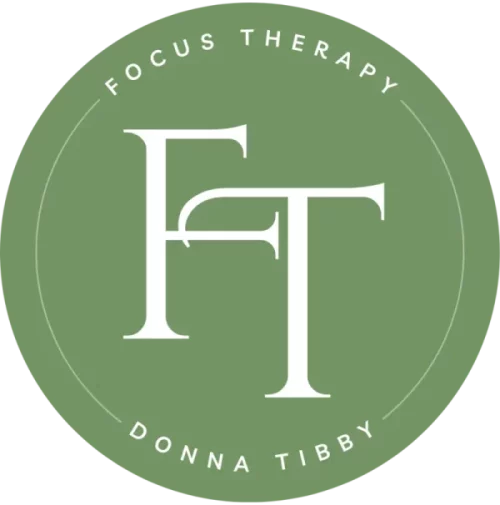The loss of a loved one is a profoundly challenging situation. Emotional pain can be tremendous when people become isolated and don't know how to manage their grief.
Bereavement counselling in Harrow guides those who have to deal with losing someone. This blog post explains the different aspects of bereavement counselling in Harrow and how it can help heal during such a hard time.
What Is Bereavement Counselling?
Bereavement counselling, also known as grief counselling, is a specific type of treatment that helps affected individuals adapt to the pain and distress experienced after the death of a loved one. It allows them to speak their minds, express feelings, process grief, and re-adjust to life.
Symptoms Of Bereavement, Grief, And Loss
Bereavement, loss, or grief can impact a person's mental and physical well-being. It is crucial to understand the symptoms, realise the impact of loss and seek proper bereavement support in Harrow. The symptoms of grief manifest in different ways, including emotional, physical, cognitive, and behavioural.
Emotional Symptoms
Grief typically triggers many emotions that can change significantly with time. Common emotional symptoms include:
- Sadness: Most probably the most recognised symptom of grief. The affected person might cry all the time or feel empty inside.
- Anger: Sometimes, anger can arise towards the deceased or others. In that case, anger may be combined with helplessness or frustration by what happened.
- Guilt: Many feel guilty about their actions or something they did or did not do before dying for the deceased. Thoughts such as "If only I had done more" frequently occur.
- Anxiety: Grief can cause increased anxiety over the future or even the general health and mortality in one's life, which can have a physical impact.
- Numbness: Some individuals feel emotionally numb or detached from reality as a defence mechanism against overwhelming emotions. This can be a temporary reaction to the shock of loss.
Physical Symptoms
Grief affects not only the psychological but also the physical. In most cases, some people may find themselves subjected to the following:
- Fatigue: Most people feel extreme tiredness or exhaustion during the grieving period. This often gets exacerbated by psychological distress and can also disturb sleep patterns.
- Changes in Appetite: The appétit of people grieving changes. They may eat far too much or too little. Such changes often impact weight and nutritional imbalances.
- Sleep Disturbances: Another common symptom is insomnia or hypersomnia. Nightmares or fear could also disturb sleep.
- Physical Pain: The grieving person might have complaints of acute pain, such as headache, joint pain, or chest pain.
- Weakened Immune System: Grief stress can weaken the immune system so individuals may suffer more severe illnesses than usual.
Cognitive Symptoms
Grief can also affect intellectual functions, often resulting in an inability to concentrate or remember things correctly. People can feel:
- Confused: The bereaved often feel confused or unable to think clearly. Such disorientation causes poor decision-making and difficulties with everyday life.
- Forgetful: Many individuals experience increased forgetfulness. It can be frustrating and compound feelings of inadequacy.
Behavioural Symptoms
Behavioural symptoms of grief can also be significant. Some common behavioural symptoms include:
- Withdrawal: People might start isolating themselves from friends and loved ones due to their emotional state.
- Changes in Routine: Grieving people have difficulty keeping up with their routine, which could impact their work performance and relationships with friends or family.
- Substance Use: Some people will opt to consume alcohol, drugs, or other unhealthy things to cope with the situation and numb the pain.
The symptoms of bereavement, grief, and loss are very complex and different from one individual to the other. Recognising the symptoms is essential for understanding one's grieving process and supporting someone dealing with a situation of loss.
There is no right way of grieving. Everyone will handle it differently. A few people might need friends, family, or professional resources to help them deal with these symptoms and heal during this difficult time. Sometimes, it would be best to visit the doctor for professional advice, especially when the symptoms persist and become too much to handle.
Coping Strategies
- Mindfulness: Mindfulness is being present at the moment without judgment. Techniques used in treatment often include guided imagery or progressive muscle relaxation to manage anxiety related to grief.
- Creative Expression: Creative expression, such as art and music therapy, can express feelings that can’t necessarily be put into words.
- Journaling: Writing about the experience and feelings of losing a person can be a way of processing emotions
- Physical Activity: Regular exercise triggers the release of endorphins, which elevate mood levels and positively reduce stress in times of hardship.
- Religious practices: Most people find positive comfort in religious belief or practice by praying, meditating, or attending services. It can provide a person with solace during the grieving process.
Coping with grief is a deeply personal journey that requires time, patience, and self-compassion. Openly grieving, seeking support from loved ones or professionals, engaging in self-care practices, finding meaning in one's life, and using competent coping strategies can help one cope better through hard times.
Remember that healing is not forgetting – it's learning how to live with the loss while cherishing the memories one has shared with those who have passed away. You are never alone on this journey.
How Can Bereavement Counselling Help?
Bereavement counselling in Harrow provides individuals with the essential support needed when one loses a loved one and when dealing with the emotional after-effects associated with it. Through this therapy, one can overcome the mix of emotions involved in grief in a safe space to open up and express oneself without fear.
Emotional Support
The primary advantage of bereavement counselling Harrow is emotional support. Bereavement arouses emotions in the minds of afflicted individuals, whether anger, feelings of guilt, sadness, confusion, or others. A qualified bereavement counsellor will offer support nonjudgmentally, enabling the person to share experiences without judgment. Validating these feelings is crucial for healing, as the individual accepts the emotions felt are normal responses to loss.
Understanding Grief
Counsellors help clients learn about the grieving process by teaching about the stages of grief – denial, anger, bargaining, depression, and acceptance. This allows them to handle emotions better. Since each client goes through a particular type of grief and not everyone progresses in the same way, this can alleviate a sense of inadequacy or guilt.
Coping Strategies
Bereavement counselling in Harrow equips people with practical techniques for handling their grief. Techniques like mindfulness, journaling, and cognitive-behavioural approaches help clients handle their grief constructively. Counsellors guide people to develop strategies unique to their experiences and help them find ways to honour their loved ones as they move on in life.
Long-Term Benefits
Research demonstrates the impacts of grief counselling in Harrow are long-lasting. Over time, people undergoing the process find lessened symptoms of depression and complicated grief compared to those who do not. Overall, bereavement counselling is beneficial not only for dealing with loss but also for facilitating resilience and letting grieving individuals find meaning in their lives.
How Long Does The Grieving Process Last?
The grieving process is highly subjective, and the time it takes may differ significantly from one person to another. Grief may last for years, and this also varies with individual loss, coping mechanisms, and personal circumstances.
Factors Influencing Grief Duration
Several factors influence how long one grieves:
- The Nature of the Loss: The relationship with the deceased matters. Generally, losing a spouse or child is more devastating than losing a grandparent or cousin, for example.
- The Circumstances of Death: Losses by sudden trauma are hard to cope with. Such a loss might result in prolonged grief reactions, whereas in cases of terminal illness, one may have some emotional preparation.
- Personal Resilience and Support Systems: Those with more robust support systems and suitable coping mechanisms may be able to work through their grief better than those left feeling isolated or lacking in resources.
- Cultural and Social Factors: Cultural expectations also affect how people deal with loss. In some cultures, expressions of sorrow are encouraged, while in others, stoicism is promoted.
Long-Term Grief
It is essential to realise that there is no set endpoint for grief. Years after a loss, people can still experience sadness on an anniversary, the holidays, or just by remembering the person. This continued connection to the deceased is essential to the grieving process. Of course, most people move on with their lives and find ways to incorporate the loss into their lives, but this can be complicated, where severe sorrow is experienced far longer than expected.
Although there is no time frame for how the grieving process lasts, understanding that it is a different experience for everyone helps in normalising it and encourages them to seek professional therapy for bereavement in Harrow when necessary.
Focus Therapy: Seek Professional Bereavement Therapy
Seeking professional bereavement therapy from Focus Therapy can be a life-changing step for people in Harrow who want to manage the effects of grief. I am Donna Tibby, a Person-Centred Integrative Counsellor who provides a safe and welcoming environment in pursuit of every client's needs.
Focus Therapy offers group sessions and workshops so people encountering similar losses can find and create a community atmosphere. Sharing an experience in such a supportive environment can break through the feelings of isolation and promote understanding.
Contact me to get help.


